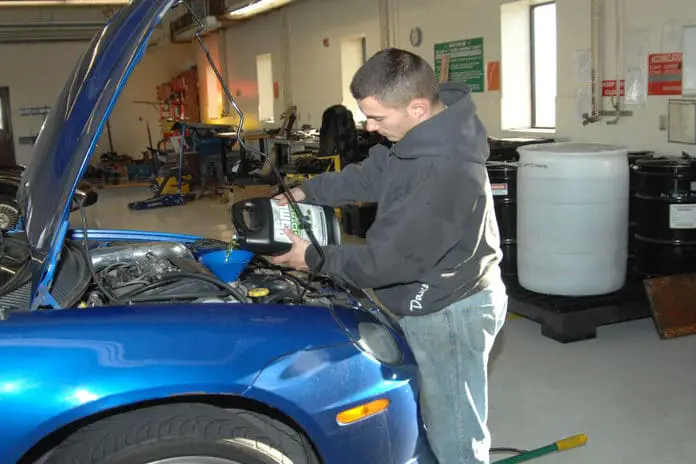
A car battery won’t last a lifetime. It only lasts for about three to four years on average. I believe everybody knows that. But of course, we also know that there are factors that usually contribute to why your car battery won’t hold a charge. But do you know any of them?
There are so many common reasons for that. It could be any of the following, and you won’t notice it right away if you are new to car batteries:
1. Bad cell
2. Bad alternator
3. Corroded Battery Cables
4. Loose Alternator Belt
5. Parasitic drain and;
6. Battery sulfation
6 Reasons Why A Car Battery Won’t Hold a Charge
I’m sure that you are here because your battery won’t hold a charge and you are wondering why on earth it is happening? Why of all people, you, who is going to work, is the one that is experiencing this kind of trouble?
Well, here are more comprehensive ways to see why your battery won’t hold it.
1. Bad Cell
This is the most common problem of dead batteries. A bad cell inside it. Can you imagine how it makes a difference to have a single cell that is bad to affect the whole system?
Well, you can identify the battery has a bad cell in any of the following methods:
1.1. Inspection – You can check if there is a broken terminal on your battery, a bulge in the case, a crack on its plastic, a leak, or even a simple discoloration – it matters.
A broken terminal or cable can cause a short circuit. A short course can result in a more complicated problem which is burning or melting – or worst, explosion. Scary as it may seem, but it can kill you if not attended right away.
1.2. Voltage reading – The battery’s voltage can determine the state of charge of a battery. You can use this specific table:
State of Charge | Voltage |
|---|---|
100% | 12.7 - 13.2 |
75% | 12.4 |
50% | 12.2 |
25% | 12.0 |
Discharged | 0 - 11.9 |
If the battery reads as 0 volts, the battery undoubtedly experienced a short circuit.
If the battery isn’t able to reach higher than 10.5 volts, then the possible reason could be a dead cell.
If the battery shows as fully charged according to the charger but shows the voltage of 12.4 or less, then the cell is considered as sulfated.
1.3. Load test – Normally, an automotive shop is the one that is responsible for doing this for you. However, there are also ways for you to do this at home. To do so, you will need a digital voltmeter and a fully charged car battery.
2. Bad Alternator
An alternator is an essential part of your car battery. It is the primary source of your car’s electrical power – one of the reasons why your car is running.
There are different ways to identify if the culprit is a bad alternator. See the following signs:
2.1. Flickering headlights – A good alternator will maintain bright lights while a defective one can grow brighter and dimmer simultaneously. If this happens, this is an immediate red flag, and you need to have it check by a mechanic near you if you don’t know how to fix it at home.
2.2. Odd sounds – When you’re starting the engine, you can quickly detect if there is something wrong with your car by the sound of it. A lousy alternator indicates a crushing sound.
3. Corroded Battery Cables
If you are experiencing difficulty in starting your car, slow cranking, crushing sound from the inside, or a rapid clicking especially when the key is turned in, then the possible reason could be corroded or loose battery terminals. A battery terminal is an electrical connection that is used to connect or charge a cell to a multiple-cell.
Our car batteries, especially lead-acid car batteries, are mostly filled with sulfuric acid. Corrosion starts when gasses like hydrogen mixed with different particle on the cell.
4. Loose Alternator Belt
The battery might not be able to hold a charge if the alternator belt is loose. It should be attached to the battery properly so that it can produce a charge enough.
5. Parasitic Drain
The battery itself and the alternator are both excellent, but what else could be draining the charge? Now, here comes the parasitic drain. The reason could be you leaving the lights on, the radio, the air conditioner, or anything that could be “always on” that is now the culprit for draining the battery even if the engine is not running.
6. Battery Sulfation
If you are mainly using a lead-acid battery for your vehicle, then there’s something that we called battery sulfation. It is the number one killer of lead-acid batteries.
There is an 80% rate that it is the leading cause of why a car battery can’t hold a charge.
But what is battery sulfation?
Battery Sulfation on Lead Acid Batteries
A lead-acid battery is the one that produces electrical power for your cars through a chemical process. This kind of cell is made up of lead plates that are swimming in sulfuric acid.
Here are the main reasons why a lead-acid battery develops sulfation:
1. There is an excessive deep discharge that occurs during the chemical process.
2. Keeping your cars in storage, and the inability to recharge it when necessary.
3. If the colder season can also kill the battery, a high temperature above 77 degrees F no wonder can break your battery in a snap.
Can We Restore Sulfated Batteries?
Sulfation is one of the common reasons (and honestly the number one cause) of early battery death. A lead-acid battery usually suffers sulfation. The question is, can we restore sulfated batteries?
The answer is yes.
As long as the used battery is unchangeably sound, it can be revived or restored. If you happen to find a stock of dead lead-acid batteries with you on your garage, then this method will work for you, and you should try it – to save money from buying new batteries.
Like any other battery that has been dead, you need to identify first which cell of the battery is no longer functional. Some of these cells might be dead or just stored for a long time.
Here is the method that you can use at home to desulfate the batteries:
1. You can use an old lead-acid battery that you can charge for about a week to 10 days. The longer duration of charging the battery will restore it. Aside from this, you need to wire in an electronic desulfate device that desulfates the acid solution in the cell.
2. You need to add a chemical desulfator to the filling ports on an old lead-acid battery. This chemical dissolves the sulfation and restores old and new batteries the same.
Always remember that if you perform the steps mentioned above, you must wear goggles and gloves while working with the batteries.
How Can You Maintain Your Car Battery?
There are a lot of ways to maintain your car battery. You can do it at home, or you can seek the help of a professional who knows how to do it better.
1. Check your car battery’s water level every 2 – 3 months. You can refill the battery with distilled water, not any water – especially tap water. Do not overfill. Use a funnel when trying to pour the water.
2. Clean the battery ends with a wire brush every 6 – 8 months. You can rub the wire brush into a mixture of baking soda and distilled water.
3. To protect the battery from rust and corrosion, you can spread the battery with grease that which protect it for high temperatures.
4. Check your battery’s voltage every time you get an oil change, or you are in the middle of car maintenance. There should be a charge of 12.5 to 12.6 voltage for a fully charged battery.
5. If your car has a battery insulator, you can also check it. Insulation is installed to protect your car battery against very high temperatures.
6. Have a mechanic check your car every three months as necessary to maintain all the parts of the vehicle, especially the car battery.
7. Fund a car battery charger that will secure the ideal charge level when your car is not running for an extended period.
8. Learn to know when you will be running errands or trips; each time you start your car, it uses your battery’s electrical charge. Avoid too short trips to save it from failing.
9. Keep the battery in a not-so-cool, not-so-hot place whenever possible. Too much heat and too much cold damages batteries.
Conclusion
When it is true that a car battery won’t last forever, it is still important to know why your car battery won’t hold a charge. We found out that there are so many reasons behind the main problem and that we can resolve it by checking the battery regularly for problems.





